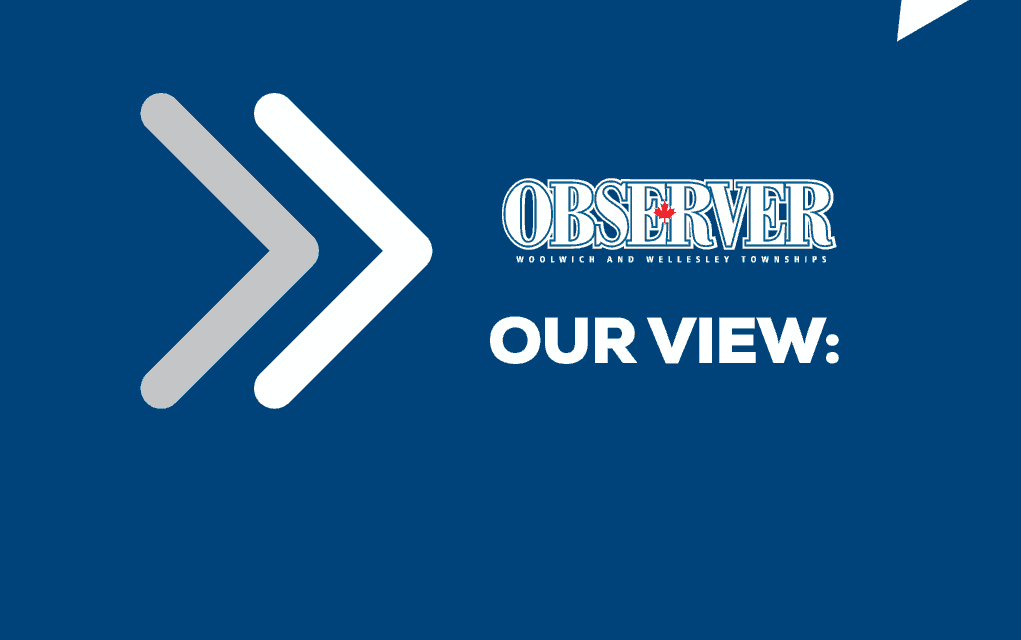A declining Canadian dollar and uncertain oil industry are leaving some Canadian business owners concerned, according to a new survey by the Greater Kitchener-Waterloo Chamber of Commerce.
The chamber surveyed its membership and found 66 per cent are concerned or very concerned about the Canadian economy, and 21 per cent are connected to the weakened Alberta oil industry, as outlined in the August 13 report.
Vice-president of advocacy Art Sinclair says it’s clear there’s a lot of economic uncertainty, not just here, but across the country.
“I think really what’s happening here, not just in Waterloo Region, but in southern Ontario is the end of last year, first of this year, when the dollar started dropping, I think people thought it would be good news in terms of opening up those export markets that we used to have about a decade ago when we had the low Canadian dollar. Particularly for the manufacturing sector, we’ve always been highly dependent on the U.S. market and it is more attractive when the dollar drops,” Sinclair said.
Sinclair notes the region is still in pretty solid shape, with unemployment levels fluctuating between one and two percentage points below the provincial or national average.
A big reason for the survey was to determine what the issues are for local businesses as we enter into the federal election campaign. Of the respondents, 30 per cent identified infrastructure as their main concern in this election.
“Obviously infrastructure’s been identified as a priority and I think if we dug down further, it’s just not local infrastructure,” Sinclair said. “Moving around Waterloo Region, but particularly for a lot of people that are exporting, whether you’re going into the United States or anywhere else, you have to be able to move your product. The manufacturing sector of course is still very much on the just in time system, where the parts are moving into the assembly plant with a very short time frame.”
The big challenge is and has always been moving products along the 401 corridor, he explained. Some businesses also expressed concern about delays at the border due to the volume of traffic trying to get across.
After reading reports from Bay Street economists, Sinclair says the general consensus is that the southern Ontario manufacturing economy will pick back up, but it’s been slow so far.
“I guess one of the big reasons is because there isn’t that much capacity left. In the last 10 years because of the higher Canadian dollar and a lot of companies moving offshore, we had to get that capacity back, in other words more facilities to pick up that volume of export into the United States. It’s been a slow transition,” Sinclair said.
He thinks Ontario is starting to stabilize now, after having economic issues going back to the start of the recession in 2008. The small business sector continues to drive job growth in the region and also across the country.
“I think we’re seeing pretty stable growth in the small business sector and I think we’re retaining a lot of that employment as well,” Sinclair said. “It’s the high tech sector that’s driving a lot of this because they’re doing what I think governments and universities and people that analyze economic trends have been advising for years, and that’s where we’re focusing our efforts and the high tech sector, the knowledge sectors.”
He notes these sectors aren’t just developing software. In a lot of cases they’re applying technology to manufacturing, for example to healthcare. He says healthcare will be a challenge as the region’s population is expected to continue to grow. The expansion at the Cambridge Memorial Hospital should help with that. Investments like that are the type of social infrastructure that are going to be key in this election he says, along with traditional infrastructure of roads and bridges.
“Governments have to make that investment in infrastructure and I think from our perspective here it’s not just roads,” Sinclair said. “Our chamber has been quite active for the last number of years in physician recruitment and healthcare. One of the issues is we’ve identified as sort of a social infrastructure which includes healthcare, which includes education. We’re generally pretty solid on the education side because in the last decade we’ve done fairly well.”
He notes investments in Conestoga College and the new business school on University Avenue as solid commitments to education in the region.
Surveyed members also expressed concern with high tax burdens, and saw debt reduction as a main election priority.
“We’re not isolated,” Sinclair said. “There are some global economic issues. I think there is some concern there in the business community, but I don’t think it’s anything we can’t overcome.”
The chamber will hold a federal election campaign forum for the Kitchener-Conestoga riding on September 29 at the Woolwich Memorial Centre from 4-6 p.m.









